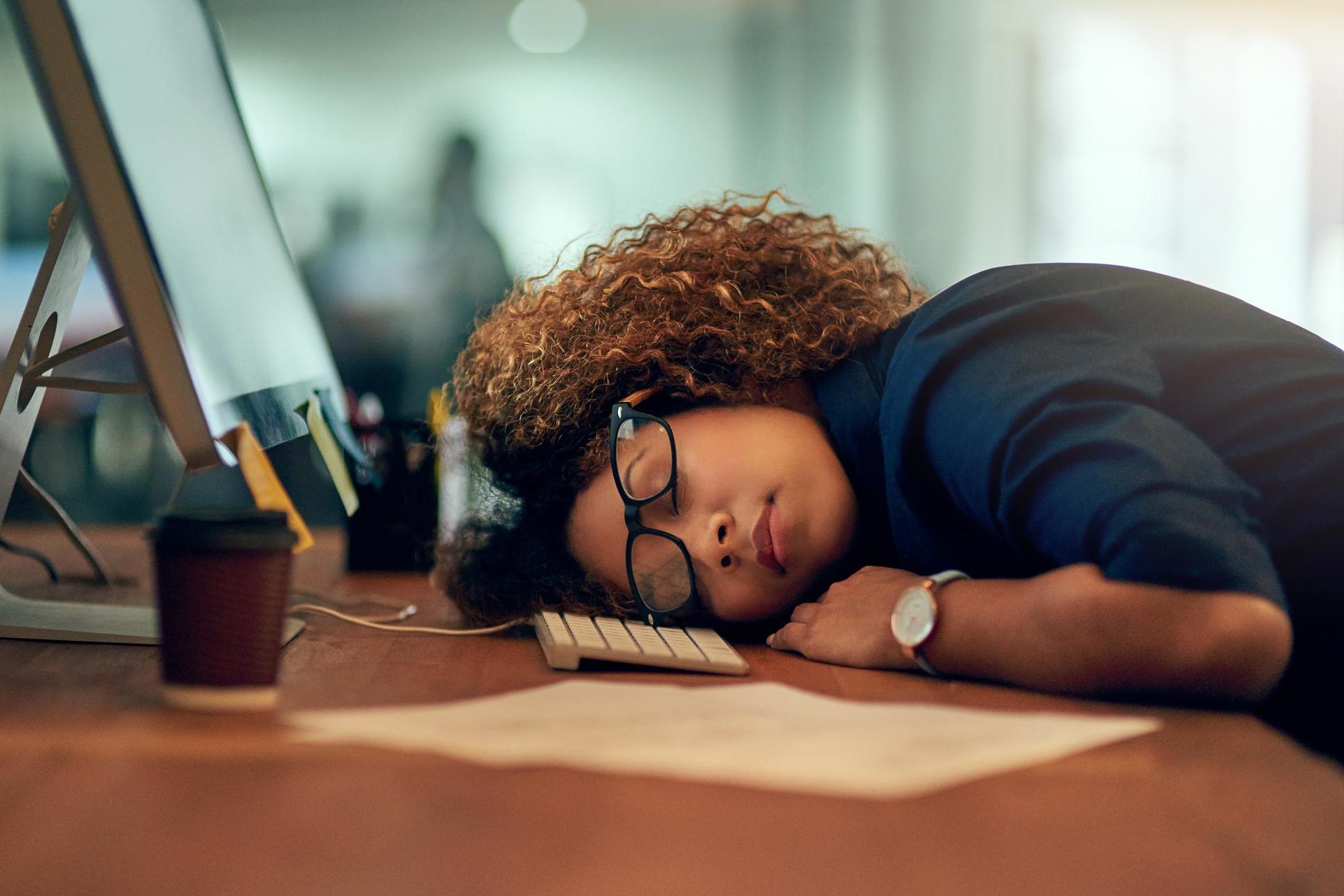How to stop yourself falling asleep when bored
'Get more sleep'

While some are good at hiding their uninterested faces from the world, others cannot help but simply fall asleep, subsequently making their boredom - and flagrant apathy - rather blatantly obvious.
Naturally, this can lead to some fairly embarrassing incidents i.e. nodding off in post-lunch meetings, face-planting your keyboard in front of your colleagues and/or accidentally indulging in a hangover-induced nap on a Friday morning.
But, what is it that differentiates a humble fidgeter from a fully-fledged bored-sleeper?
In other words, why is it that some people fall asleep when they’re bored, while others can happily twiddle their thumbs till the cows come home?
According to sleep consultant Dr Neil Stanley, a person’s ability to fall asleep is governed by feelings of safety and security.
“Therefore, in a low-stress, safe, environment such as a lecture or watching a film it is common for some people to feel a strong urge to sleep,” he told The Independent.
These scenarios can lead to a “quiet mind”, free from the stresses and anxieties that might otherwise occupy us.
Stanley explains that this calm mental state is a prerequisite to sleep, as it enables people to cognitively disengage from their environment, sometimes without realising.
However, that doesn’t necessarily mean that boredom is the cause, even though you might find said film or said lecture as interesting as a wooden spoon.
According to Christine Hansen, holistic sleep expert and spokesperson for Eve Sleep, unexpected urges to sleep during the day has little to do with boredom at all and is usually a reflection of that person’s overall energy levels rather than their disinterest.
“These people are probably already tired and need to recuperate,” she told The Independent, “so when they are given the opportunity to be less alert and focused, they allow sleep to take over.”
“It will be in situations when they are passive and there is nothing on the line, nothing that is likely to immediately be asked of them, and normally, where they have the freedom of not being seen.”
Typically, it happens in dark, warm environments that help lull people into a disconnected state.
Sleep coach and clinical hypnotherapist Max Kirsten agrees that sleep deprivation is often the cause, though he adds that the majority of people don’t recognise when they are sleep-deprived, often relying on regular caffeine boosts to get by.
“Combined with a low boredom tolerance and a tendency to get bored very quickly, these people start daydreaming, which can lead to nodding off,” he told The Independent, “in the same way that a driver can feel sleepy, particularly if they are driving on motorways and staring at tail lights.
“People who are more rested and who haven’t just eaten something (digesting food also makes you feel tired temporarily) generally stay awake when bored.”
Interestingly, leading sleep expert at Silentnight, Dr Nerina Ramlakhan, agrees that people who succumb to daytime snoozing seldom do so out of boredom, in fact, she explains the reason is because your body falls into a state of consciousness known as a hypnagogic trance.
“This occurs if your brain is being bombarded, or has been bombarded, with too much information,” she told The Independent.
“By slipping into a trance-like state the brain cleverly seeks ways of going 'offline', in order to empty our mental filing cabinets so that we can come back to the task in hand with renewed focus.”
This can be more common for people who have lots of exposure to screens, she added.
So, aside from reducing screen time, what can people do to stop themselves nodding off in compromising situations?
The first, and most obvious, remedy is to ensure you are actually getting enough sleep, ideally a minimum of seven hours a night, the experts advise.
Regular exercise can be helpful too, Kirsten said, as this will boost metabolic rate and oxygen absorption, both of which are conducive to good sleep.
Avoiding alcohol and red meat can help too, he adds, while taking regular breaks during long shifts are key to avoiding any office snoozing mishaps.
Join our commenting forum
Join thought-provoking conversations, follow other Independent readers and see their replies
Comments
Bookmark popover
Removed from bookmarks